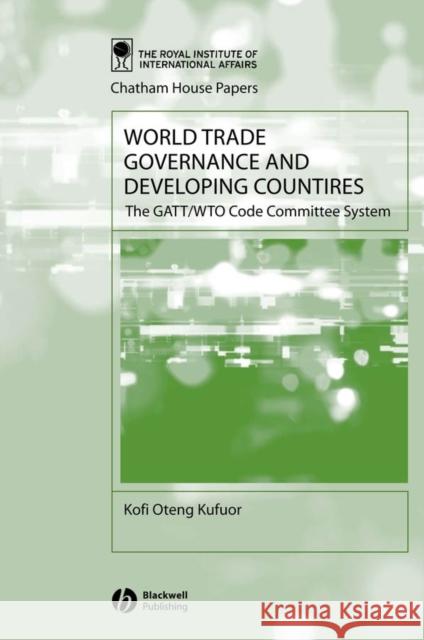World Trade Governance and Developing Countries: The Gatt/Wto Code Committee System » książka
topmenu
World Trade Governance and Developing Countries: The Gatt/Wto Code Committee System
ISBN-13: 9781405116770 / Angielski / Miękka / 2004 / 144 str.
World Trade Governance and Developing Countries: The Gatt/Wto Code Committee System
ISBN-13: 9781405116770 / Angielski / Miękka / 2004 / 144 str.
cena 120,41
(netto: 114,68 VAT: 5%)
Najniższa cena z 30 dni: 119,68
(netto: 114,68 VAT: 5%)
Najniższa cena z 30 dni: 119,68
Termin realizacji zamówienia:
ok. 30 dni roboczych.
ok. 30 dni roboczych.
Darmowa dostawa!
A comprehensive study of developing countries in the GATT/WTO system.
- Explores how the developing countries have shaped and have been shaped by the GATT/WTO committees.
- Investigates the areas of critical importance to developing countries including antidumping, textiles, agriculture, trade and the environment.
- Offers suggestions on how the developing countries can improve their participation in committee meetings.











